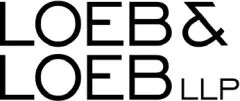- within Consumer Protection, Tax and Employment and HR topic(s)
The NBA last month became the first major U.S. sports league to approve 'in principle at least 'the placement of advertisers' logos on team game jerseys. After its July board of governors meeting, the league announced that team owners tentatively approved a uniform sponsorship program that includes the placement of a small logo patch on team jerseys 'the least intrusive of the three uniform advertising prototypes reviewed at their April meeting.
At a news conference on July 19, immediately following the league meeting, NBA Deputy Commissioner Adam Silver reported that the owners were "excited" by this "big opportunity."
Silver reported that team owners discussed extensively the current proposal under which teams would sell sponsors the right to have a single, 2½-inch square patch placed on the upper chest area of game jerseys. While the owners delayed a formal vote on the program to give the teams more time to "gain a greater understanding of how the additional revenue would impact their ability to remain both competitive and profitable," Silver indicated unanimous support of the sponsorship program. "Every team is in favor of doing this in some form."
Given that 15 of the 30 teams in the league reportedly lost money in the 2010-2011 season, that team ownership is in favor of an additional revenue stream is hardly surprising 'especially with the big-dollar revenue figures the NBA and commentators are tossing around. While cautioning that the revenue estimate team owners have been considering "is very much a loose projection," in part because no other major U.S. sports league had yet to institute a similar program, Silver reported that by selling the jersey patch the league was estimating that "on an aggregate basis, leaguewide, our 30 teams could generate a total of $100 million by selling that patch on jerseys 'per season."
The projection is derived from data from the jersey-sponsorship program of the English Premier League, said Silver, who noted that one NBA owner (Denver Nuggets owner Stan Kroenke) is also an owner of Arsenal in the Premier League. The $100 million figure may be conservative, however, according to some market analysts who have been projecting advertising revenue from jersey sponsorships to be between $1.5 million and $10 million a year, depending on the market size of the team, for total revenue of $125 million or more leaguewide.
Of course, the Bulls are not a struggling team by any measure. Already one of the top three most profitable teams in the NBA, Forbes magazine reported, based on figures for the 2010-2011 season, the team could bring in an additional $8 million to $10 million in revenue from the sponsorship program. Even under the provisions of the NBA's new revenuesharing plan, which would apportion some to that revenue to teams in smaller markets that can't negotiate as lucrative a sponsorship deal, Chicago would still gain a significant profit from the new program.
Anticipating that owners will vote to implement the program (most likely at their September board meeting), the league expects to finalize a set of program guidelines for teams before the start of this season and that patches will start appearing on jerseys in the 2013- 2014 season. Silver said the timing recognizes that "teams would need a significant lead time, one, to sell the patch and, two, for Adidas to manufacture the uniforms, because the patch that would be on the players' uniforms would also appear on the jerseys at retail."
Making the decision to accept advertising on game jerseys is just the beginning, however. The teams and the league will have to grapple with a number of issues as they move toward full implementation of the program in the 2013-2014 season, including how the program will be structured, navigating conflicts with existing league and arena sponsorships and how the revenues will be shared among the teams 'and the players 'given the new local revenue-sharing plan and player collective bargaining agreements. Meanwhile, the grumbling has already started among commentators and fans. A recent ESPN poll indicates that 71 percent of fans are opposed to jersey advertising.
Many outspoken fans have expressed the opinion that the jersey sponsorship program is yet "another" way for the owners to line their pockets, at the expense of the fans. For the Bulls, whose success as a team 'at least in terms of profitability 'is, by some accounts, heavily influenced by its solid and supportive fan base, the team might not want to dismiss fan reaction quite so easily. Just as an example, the Derrick Rose Bulls jersey was the top selling NBA jersey in the United States during the 2011-2012 season (and the second internationally), as reported by the NBA. Once the Bulls sign a uniform sponsorship and put a corporate logo patch on their jerseys 'including the ones sold at retail 'those jerseys are changed forever, not just during the 2013-2014 season.
Fans who oppose the Bulls choice of sponsor may (or may not) continue to watch the game, but they may not buy the jersey. How much the increased sponsorship revenue from the jersey program will go to offset decreases in other revenue streams is also an issue the teams will need to evaluate.
At the news conference, Silver and NBA Commissioner David Stern both seemed to concede the possibility of pushback from fans. In the end, however, the owners and the league likely won't be able to turn down the "big opportunity" for a new and potentially significant revenue stream.
Previously published in the Chicago Daily Law Bulletin, Tuesday August 14, 2012.
The content of this article is intended to provide a general guide to the subject matter. Specialist advice should be sought about your specific circumstances.


